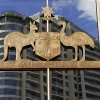39 careers found.
Landcare workers perform a range of tasks to maintain and restore native bushland and farmland.
Life scientists examine the anatomy, physiology and biochemistry of humans, animals, plants and other living organisms to better understand how living organisms function and interact with each other and the environment.
Marine biologists study the origin, structure, functions and behaviour of all forms of life in the sea and connected estuaries, rivers and lakes, as well as their relationships with each other and the environment.
Mathematicians apply and develop mathematical principles to solve problems in all areas of the sciences, technology, social sciences, business, industry and commerce.
Medical scientists conduct medical laboratory tests to provide information for diagnosing, treating and preventing disease. A medical scientist may specialise in haematology, immunology, transfusion science, clinical biochemistry, microbiology, histopathology, cytology, molecular genetics or virology.
Meteorologists forecast the weather and study the atmosphere to improve the understanding of climate.
Microbiologists study microscopic forms of life such as bacteria, viruses, protozoa, algae and fungi to increase scientific knowledge and develop medical, veterinary, industrial, environmental and other practical applications.
Museum curators look after, manage, organise, display and develop museum collections, and conduct related research. Museum curators usually specialise in a broad discipline, such as anthropology, art, decorative arts, natural history, social history, science or technology. Within that discipline they are generally recognised as authorities on one or more specific subject areas.
Physical science technical officers support scientists in the physical sciences. They perform laboratory tests on solids, liquids and gases, analyse test data and carry out a range of technical functions. Work in physical science areas such as physics, chemistry, biotechnology and engineering is usually undertaken in support of other scientists.
Physicists study the behaviour of the physical world at the most basic level and find practical ways to apply new knowledge gained from their research in areas of science and technology.Physicists are usually identified within three broad roles:• theoretical physicists, who develop theories or models of how particular aspects of the world work• experimental physicists, who test these theories, determining their limits and suggesting new approaches to them• applied physicists, who apply these findings in practical settings, such as within industry and through the introduction of new technology.There is interaction between all three roles and physicists generally have skills in each of these areas.
Project and program administrators plan and administer programs, special projects and support services, including management or staff. Project and program administrators can work for either public or private sector organisations. They are responsible for ensuring that projects such as major building and construction or information technology infrastructure, or programs such as new government policies, are designed and completed on time and within budget.
Project support officers assist and support project managers, specialists and other workers with the planning and ongoing administration of programs and projects.
Public servants in the Australian Public Service (APS) work in a wide range of areas such as community and social services, defence, economic management, education, employment, foreign affairs, health, housing, industrial relations and transport. They are employed in a variety of clerical, technical and professional careers.
State government public servants are government employees who work in any of the departments of a state or territory government.
Research and development managers plan, administer and review the research and development program and activities of an organisation.






